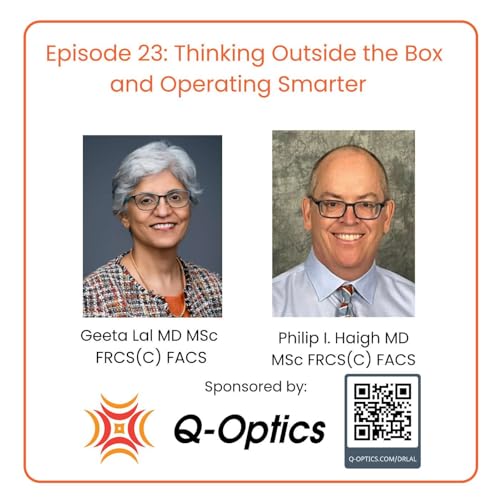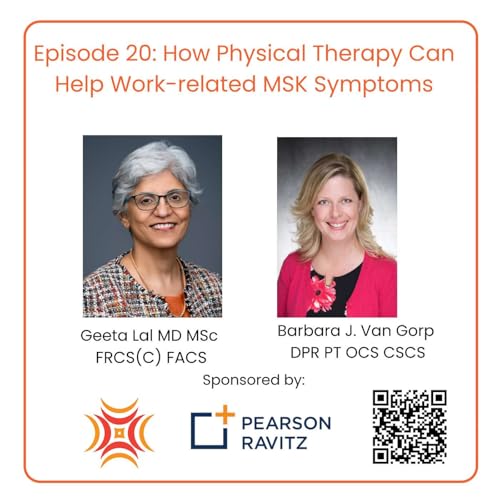This episode of the podcast is sponsored by Smart Step Surgical LLC. You can learn about them and schedule a demo via https://www.smartstepsurgical.com/blogs/news/surgical-ergonomic-podcast-promotional-discount
Disclosure:
Smart Step Surgical is a paid sponsor and the affiliate link above supports the podcast at no cost to you. They also provide our podcast listeners with a discount (20%), so we hope that it is a win-win!
Episode details:
Dr. Kimberly Kho is currently a Professor, inaugural Chief of
Advanced Gynecology and MIGS and Associate Chair of Faculty Development in the Department of Obstetrics, Gynecology & Women’s Health at the University of Hawaii John A. Burns School of Medicine. Most recently, she was a Professor, the Associate Chief of Gynecology, and the Director of the Minimally Invasive Gynecologic Surgery Fellowship Program at UT Southwestern Medical Center.
In addition to patient care, Dr. Kho has been a National Institutes of
Health-supported clinical scholar with a focus on evaluating surgical techniques and technologies for the treatment of fibroids, adenomyosis and endometriosis, and more recently on surgical ergonomics. She currently serves on the Board of Directors for AAGL.
In this episode (recorded prior to her move) Dr. Kho:
- Shares how she first became aware of body mechanics in her intern year while performing an elective C-section with her attending and how her MSK pain was exacerbated in fellowship
- Describes how she felt that she could not disclose or discuss her injuries as a new attending trying to establish a practice
- Discusses why high-achieving surgeons and proceduralists experience shame, guilt and pressure to perform, thus not seeking help until their bodies force them
- Shares results of a recent study showing that 95.7% of gynecologic surgeons have pain during or after performing surgery. In addition, nearly 24% reported changing the surgical modality they offered patients based on their symptoms, and 62.5% were concerned about their ability to operate in the future
- Emphasizes that although she still uses conventional laparoscopy, she has switched to doing more robot-assisted surgery for improved ergonomics
- Expands on her ergonomics non-negotiables for the OR - Correct set-ups for both laparoscopic and robot-assisted surgery, anti-fatigue mats, proper footwear and intra-operative breaks and stretches
- Encourages us all to work to improve OR culture for all personnel including nurses and scrub techs
Dr. Kho can be reached on LinkedIn and Instagram
Follow us on LinkedIn, X, Instagram and Facebook and please reach out to us if you have any suggestions regarding episode ideas and guests or if you'd like to be a guest on the show
 40 mins
40 mins Dec 2 202555 mins
Dec 2 202555 mins Nov 17 202542 mins
Nov 17 202542 mins 33 mins
33 mins 32 mins
32 mins 53 mins
53 mins 41 mins
41 mins 46 mins
46 mins
